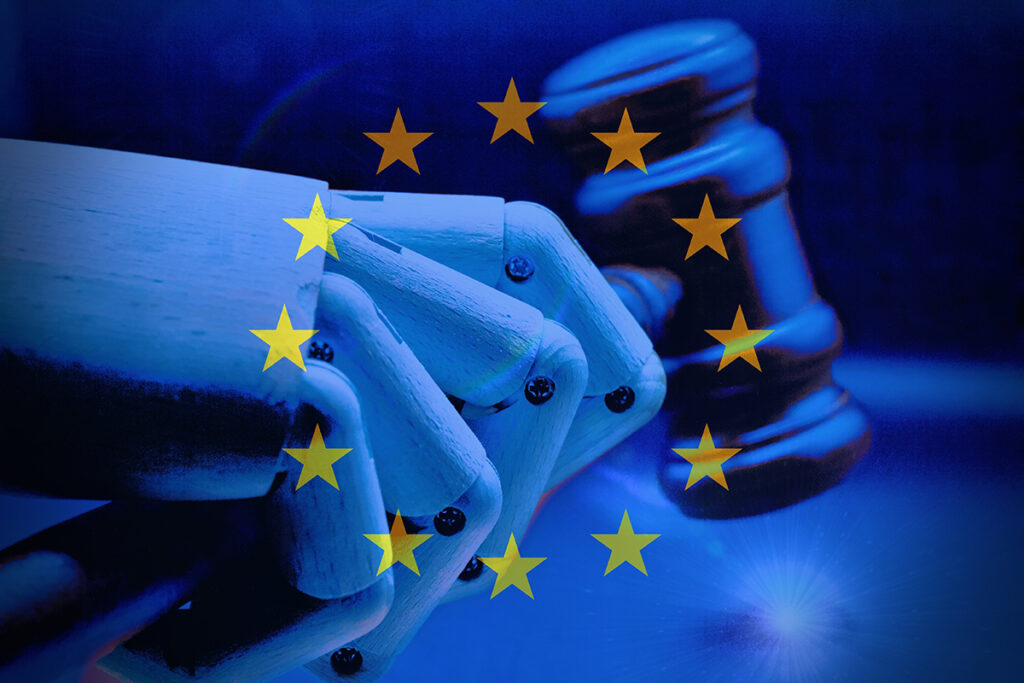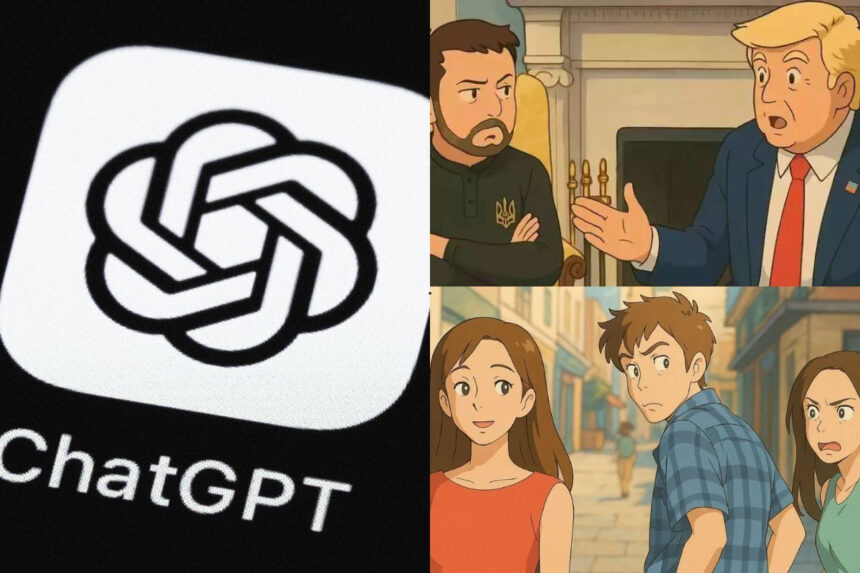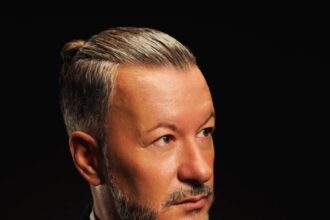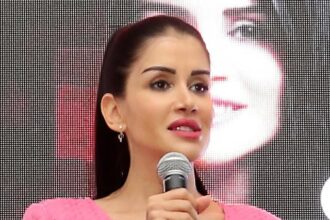In the United Arab Emirates (EAU), where AI is a national priority and regulatory frameworks are quickly evolving, experts say that the challenge to balance innovation with stronger protections for the country’s creative community.
“There is an obvious threat to jobs, salaries and livelihoods, since the perceived value of the niche and the art of speaking is diluted by overestification,” said Declan McMlynn, creative director of Voice Swap AI, Arab business In an exclusive interview.
Legal and ethical challenges or content generated by AI
The rapid increase in the content generated by AI is creating difficult legal and ethical questions for artists and rights elevators worldwide, he said, adding that the intellectual property of brands such as Studio Ghiblihihose Identity Creatity should be rooted in Scarry and could be diluted, and the Mystique and the magic that surround their creative process trivialized. “
“The same logic applies to any musical artist, cinema or television franchise that has created its own sound or visual identity. All this leads to the negative financial impact for the original creators, while others are monetizing their works,” he explained.
McMlynn also highlighted the complexities of current copyright laws on the art generated by AI. “It is an open question that currently varies according to the territory,” he said.
While some jurisdictions are considering exemptions that allow the models to train content with copyright without licenses, such movements have faced a “significant setback” of creative industries, according to McGlynn.
Much will depend on the results of high profile cases, such as The New York Times vs. OpenI and the Riaa vs. Suno and Udiowhich is expected to clarify how sholders are compensated when their work is used to train AI models.
And although some territories, such as the EU, have already introduced integral regulations of AI, other markets, including EAU, are still shaping their legal frameworks.
“The EU has already adopted the law of AI, which is the first integral regulation on artificial intelligence in the world. This movement has established a significant precedent for the governance of AI, focusing on guaranteeing the ethical and safe use of AI in several sectors, including creativity,” said Marina el Hachem, associate of Bsa Law, said the law of BSA. Arab business.
“While the EAU is likely to follow their example with similar regulations to address the impact of AI on artists and intellectual property, there is no clear timeline about when these regulations will be introduced. From now on, we are still waiting for the visibility of when EAU will launch their own framework to address emerging thesis challenges,” he added.

The proactive approach of the EAU for AI and data protection
Nuncaberness, the EAU have significant steps tasks to modernize intellectual property laws to address the challenges raised by the content generated by AI.
Federal Law No. 38 or 2021 copyright and neighboring rights, which entered into force in January 2022, is considered one of the most difficult in the world.
It offers clearer definitions owned by copyright, even in cases involving digital and collaborative works, and introducers of strict measures of application against infractions.
However, although the UAE updated copyright law entered into force in 2022, it was not specifically introduced in response to AI, according to the hachem.
“Its moment has proven useful, because it sacrifices a stronger and clearer legal structure for artists who work in the increasingly digital and integrated creative environment of AI” today, “he said.
In addition to the copyright reforms, the EAU have also promulgated the Federal Decree Decree-Law 45 or 2021 on the protection of personal data, which also entered into force in January 2022.
This law establishes a comprehensive legal framework to safeguard personal data in the EAU and applies to data controllers and processors inside and outside the country that manage the personal data of the EAU residents.
Defines the rights and duties of all interested parties and establishes requirements for cross -border transfer and the exchange of personal data for processing purposes.
Eau’s commitment to IA’s innovation is demonstrated even more through the establishment of the Artificial Intelligence and Advanced Technology Council (AIATC) in January 2024.
The board approach is to develop and implement policies and strategies related to research, infrastructure and investments in the field of artificial intelligence and advanced technology within Abu Dhabi.
“These developments show that although the regulation of AI is still evolving in the EAU, the country is preparing the stage for a more structured supervision in the future, which could include protections for artists and their work in the space of the aggregate.

Regulation of balanced an obligation to protect creatives
Despite these advances, experts emphasized the importance of balanced regulation that protects artists without quelling innovation.
“There is a delicate balance between the protection of intellectual property and encourage technological advancement. On the one hand, artists need protection against unauthorized use of their work, especially when AI can easily replicate or build on existing ones,” said Buildd Bulddd Buildddddd Hachem.
“On the other hand, the AI prosper in the data and the ability to learn from fixed amounts of information, including creative works, which can generate concerns about the regulation that stifles innovation and the potential of AI.”
To navigate this balance, it suggests that artists take proactive measures to protect their work, such as registering their works with the Ministry of Economy, including explicit terms in license agreements that prohibit the use of technologies) Technologies to control and restrict the use of digital copies of their works.
Viral Studio Ghibli, Action Figure Chatgpt Trend Bause Privacy Conerns
The implications of the viral trends of AI extend beyond copyright and artistic property, partly in areas or privacy of personal data.
Santiago Pontiroli, TRU principal researcher in Acronis explained that AI companies can use content to train their models, even if users are not aware of it.
“Viral Ai Trends Like The Studio Ghibli Or Action Figure Challenges Might Seem Harmless and Fun, But They Can Expose More Personal Data Than Users Realise. Like;
The situation becomes more worrying when combined with the growing sophistication of deep technologies and voice cloning generated by AI.

“The terms and conditions are regular long and lazy; most users skip them. By clicking on ‘Accept’, without knowing it, they could give companies the right to store, reuse or market their photos,” he said.
“These images can end in training sets for facial recognition, style transfer or generative AI. In some cases, future AI tools could imitate people’s love or personal features.”
He pointed out that while the Federal Decree of the EAU no. 45 or 2021 is a strong first step in data protection, continuous updates and public awareness campaigns are crucial as technology quickly evolves.
“Meanwhile, users can take small measures to protect themselves (such as identifiable background avodonation or use anonymous accounts), but the greatest responsibility lies in companies to clearly indicate what is happening,” data.
What can IA companies do, users to stay ethical?
For McMlynn, one of the largest cultural risks of the use of non -regulated the potential erosion of artistic heritage and culturally significant art forms.
“The generative AI could accelerate cultural appropriation, especially around the art and music styles that are spoken with a country, region or culture,” he said.
“If it is no longer required to look for the services of an individual artist or a group of artists, who are specialists in a certain style of art or music, that style and art form could be about generations,” he added.
McMlynn suggested that the future of AI in creative industries lies in the construction of tools that complement instead of replacing human creativity.
“By building tools that complement existing workflows instead of replacing them, and collaborating with creatives to create models that remind them a lot for their data.
“AI does not have to replace creativity, it can be a tool that improves creative expression if it respects the rights of creatives, artists, designers, filmmakers and more,” he said, adding that the market is likely to regulate ISSF in many ways.
“The right sholders not because working with companies that are stealing from them, as is evident for Riaa’s demand against Suno and Udio generative music platforms, so we are likely to see a change towards associations: Usewapders-Whatswapders-Whatswapders-Whapswapers-Whoywapswapders-Whoywapswapders-Whoy-Wandwapders-Whoe Whoe Wandwapers-Whoewapers The right handlers with respect and compensation for the use of their training dates, “McGlyn added.
How the EAU are strategically building their Government framework of AI
While other jurisdictions have bolder steps tasks, such as EU AI Law or Nofales Law proposed in the United States, both hachem and McLynn pointed out that EAU are adopting a strategic approach considered.
As the Hachem explained, the governance of the AI of the EAU is evolving through a mosaic of decrees, advice and initiatives, but its focus on AI as a national growth sector means specific protections of the structured for artists and creatives and creatives.
“The EAU, like many other nations, will need to carefully navigate the thesis challenges to ensure that the rights of artists are protected in this new era of creativity driven by AI,” he said.
For now, experts agree that consciousness, surveillance and development of the AI response model, together with the advanced legal framework of the EAU, will be key to preserving creative livelihoods and cultural heritage in the AI era.








